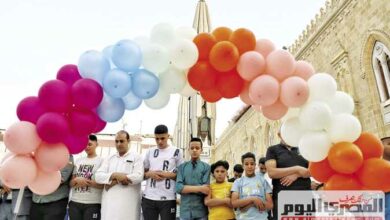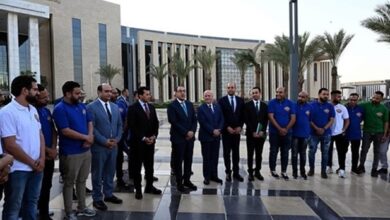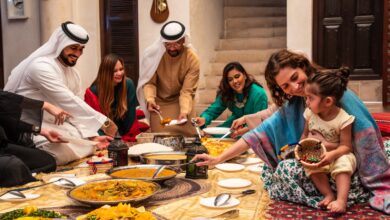Some Tahrir Square protesters on Sunday declared their intention to continue their ongoing sit-in, despite the fact that some 26 political groups pledged to withdraw from the square. The groups had declared they would suspend protests and sit-ins nationwide during the Islamic holy month of Ramadan.
Due to the vast reduction in numbers, any remaining camp is likely to occupy only the central traffic island, and traffic through the square will resume its normal flow. And while the rigors of fasting during the holy month are likely to be compounded by the stresses of life under canvas, observant Muslims who intend to remain in the square seem determined to face the challenge.
“Ramadan will not change anything in our life here. We’ll just take two meals instead of three,” teased Mostafa, a civil engineer who has been taking part to the sit-in since 8 July.
The protesters said that fasting during Ramadan is intended to teach believers patience and humility.
Ahmed, a former executive manager of a financial institution, emphasized the importance of praying: “Ramadan is a month dedicated to praying and reading the Quran. It’ll give us the internal power to overcome whatever difficulties we might face in pursuing the sit-in.”
Some people, however, have expressed their concern about the heat and risks of dehydration, as is the case with Mostafa, a supporter of the Egyptian Socialist Party. “Right now, I drink six to seven bottles of water a day because of the heat under the tents. This is going to be hard to deal with during Ramadan, but I am prepared to it,” he said.
When asked about the difficulties of organizing iftar, the fast-breaking meal, without a proper kitchen to prepare dishes, the remaining tent-dwellers seemed unconcerned.
“My mother and sister are going to bring food every day,” says Mokhtar, a bricklayer who has been in the square since the beginning of the July sit-in.
Most of the people interviewed say that Ramadan is a blessed time to give to charity. The zakat (or alms-giving) is usually paid during the month, and it is not rare to see people giving food to the poor or organizing meals for a whole neighborhood.
“This is going to be like any other neighborhood in Cairo,” says Ahmed. “During Ramadan people are supposed to be generous. Everybody who can afford it is going to bring food.”
“The idea behind Ramadan is that everybody contributes,” confirms Faris.
Ahmed explains that sharing is already well-established among the protesters. The cost of food, water and ice approaches several dozen Egyptian pounds per person each day, and many have resorted to using a "sharing pot,” into which people drop whatever funds they can afford.
“We’ll definitely use this system if it’s needed to prepare iftar,” he says.
Mostafa adds: “We usually break the fast with dates and milk, which are very cheap products.”
An important fast-breaking meal is scheduling for the first Friday of the holy month. “We are planning to share iftar all together on the ground, in front of the mosque,” says Faris.
Ultimately, organizing iftar in Ramadan is going to be handled by the generosity of each individual. No political group is planning to centralize cooking or food transportation.
“God will help us to prepare Ramadan,” concludes Mostafa.




